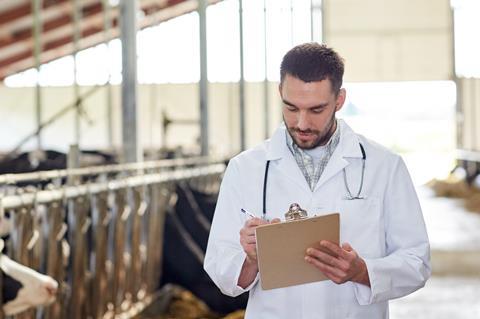A report from the Public Accounts Committee (PAC) has looked at the UK’s resilience to animal diseases such as bird flu, which it says pose a “significant threat” to the UK’s health, communities, wildlife, economy, trade and agriculture.

The PAC said in its report that Government would find responding to such outbreaks to be “extremely stretching”, with more than a quarter of local public services not confident in their outbreak capabilities.
It summarised that the Department for Environment, Food & Rural Affairs (Defra) and the Animal & Plant Health Agency (APHA) had “worked hard” to manage medium-severity animal diseases outbreaks over recent years, but “were not adequately prepared” for the most severe outbreaks.
However, it went on to say that resources had been diverted away from other work to prepare for future outbreaks by the “semi-permanent response mode” Government has moved into as a result.
PAC highlighted that this, alongside the post-Brexit loss of access to the EU’s animal diseases intelligence system, had caused a reduction in vital surveillance to help detect new and re-emerging disease threats quickly and stop their spread.
It also pointed out that APHA had struggled to recruit and retain enough vets, with a vacancy rate of 15% in September 2025. This was attributed to mental health issues related to activities such as culling animals, pay and conditions, and working hours.
The National Biosecurity Centre at Weybridge was labelled as “critical” to the management of threats from animal diseases, but the PAC reported that it was in poor condition. This, it continued, presented “significant interim risks” as the facility continues to age, as its c.£2.8 billion redevelopment is not set for completion for a decade.
It was also reported that border controls to prevent a new disease arriving in the UK as a result were “insufficient to address the level of risk”, as there was a 55-fold increase in the seizures of illegal meat imports from January 2023 to January 2025. However, Government said it does not know whether this is due to an increase in actual imports or better enforcement.
The PAC has called for:
- A veterinary workforce strategy to be produced in the next year to address the vets shortage.
- A 10-year plan for the Weybridge Centre’s redevelopment, given its strategic importance and the existential risk that a major failure there could pose an emergency response to an outbreak.
- The development of a strategy to tackle shortages in animal vaccines.
Sir Geoffrey Clifton-Brown MP, chair of the PAC, said: “The bill for the major foot and mouth disease outbreak in 2001 ran into multiple billions for the public and private sector. Serious animal disease outbreaks pose a severe threat to wildlife, and the farming sector, and in the case of zoonotic diseases, to human health.
“Our latest report should therefore be of the deepest concern to all of us. Hard work has been done to respond to the current outbreaks of bird flu and, amongst sheep and cattle, bluetongue virus.
“But the necessity for a semi-permanent response to these current outbreaks has pulled Government away from vital preparations for future threats – which have to be treated as a matter of when, not if.
“Government needs to act now to prepare a full strategy to ensure preparedness for such events in the future, and we look forward to the results of Exercise Pegasus and Exercise Aspen this year – two major rehearsals carried out by Government to test preparedness for a zoonotic disease pandemic and a foot and mouth outbreak.
“The Government must use these exercises to fully evaluate our nation’s preparedness, swiftly address the underlying factors driving the vet vacancy rate, and make sure it has eyes and ears on the ground to detect oncoming threats quickly.
“A similar strategy is required for animal vaccines – farmers have been left in a very difficult position with the prospect of bovine TB becoming worse once again, and a new cattle vaccine seemingly years away.
“Government has been strongly focused on the immediate-term threats – it must now develop the bandwidth to look to the long-term as well.”
National Pig Association supports recommendations
National Pig Association public affairs manager Tom Haynes said: “This report is the latest in a series of reports which confirm what we already knew about the state of our national biosecurity and capacity to manage disease.
“The issues at our border have been made plain to see with DPHA alone reporting a 55-fold increase in the seizures of illegal meat between January 2023 and January 2025.
“We wholeheartedly support the committee’s recommendations for Government to build a greater bank of evidence about what is driving this illegal trade and to then allocate funding to those at the border in recognition of the significant costs a major disease outbreak could have in the UK. The report states that the 2001 FMD outbreak cost the UK £13.8 billion in 2023-24 prices.
“The report is again clear that APHA are severely under-resourced and we still have major concerns about how the agencies would cope if we were to contract another notifiable disease.
“Once again, our question for Government is how long can they keep ignoring this risk?”
The full report can be accessed here.















